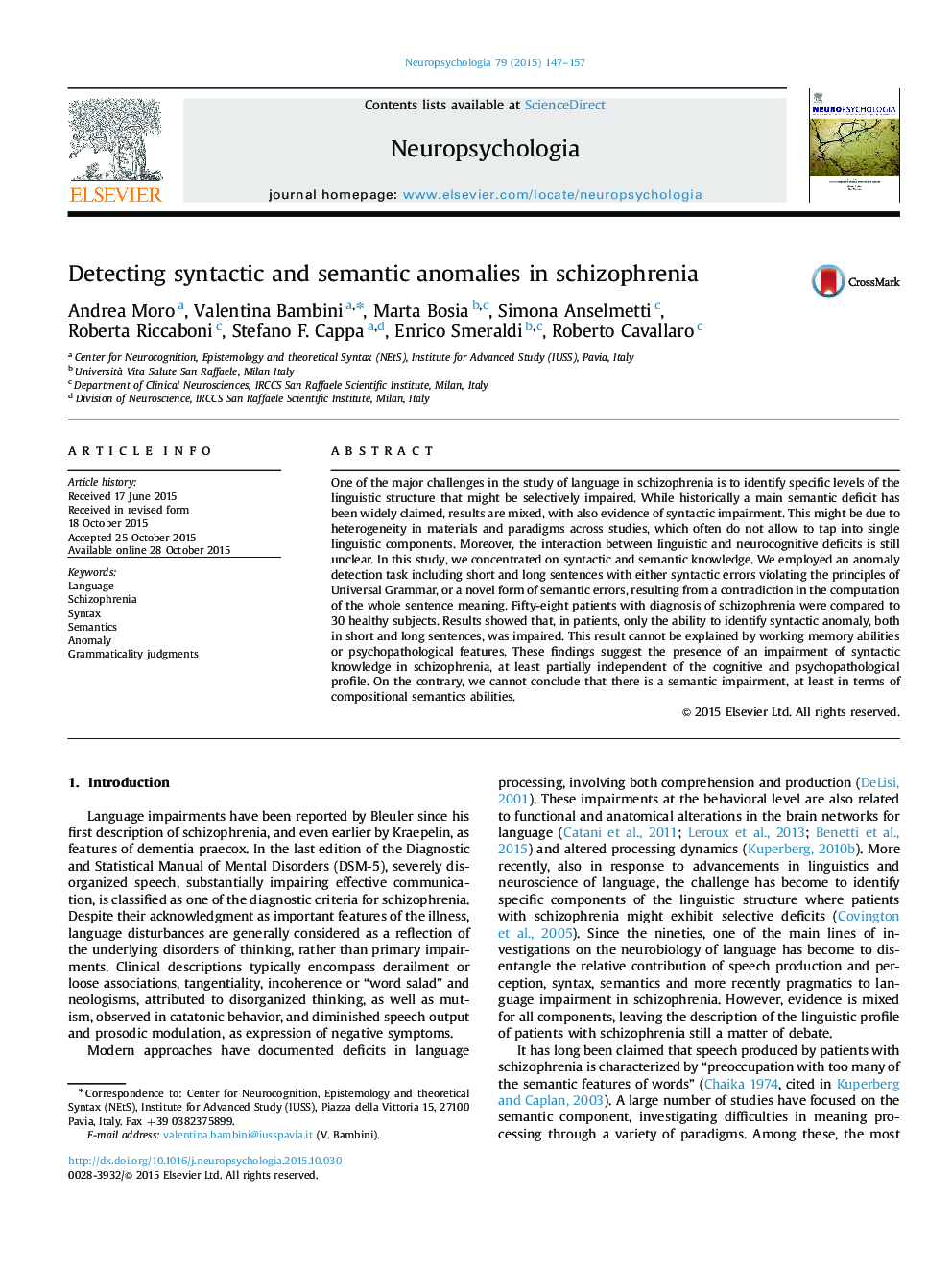| Article ID | Journal | Published Year | Pages | File Type |
|---|---|---|---|---|
| 944748 | Neuropsychologia | 2015 | 11 Pages |
•We analyzed syntax and semantics in patients with schizophrenia and controls.•Stimuli included violations of Universal Grammar and compositional semantics.•Patients showed an impairment only in the ability to identify syntactic anomalies.•The syntactic deficit seems independent of cognition and psychopathology.
One of the major challenges in the study of language in schizophrenia is to identify specific levels of the linguistic structure that might be selectively impaired. While historically a main semantic deficit has been widely claimed, results are mixed, with also evidence of syntactic impairment. This might be due to heterogeneity in materials and paradigms across studies, which often do not allow to tap into single linguistic components. Moreover, the interaction between linguistic and neurocognitive deficits is still unclear. In this study, we concentrated on syntactic and semantic knowledge. We employed an anomaly detection task including short and long sentences with either syntactic errors violating the principles of Universal Grammar, or a novel form of semantic errors, resulting from a contradiction in the computation of the whole sentence meaning. Fifty-eight patients with diagnosis of schizophrenia were compared to 30 healthy subjects. Results showed that, in patients, only the ability to identify syntactic anomaly, both in short and long sentences, was impaired. This result cannot be explained by working memory abilities or psychopathological features. These findings suggest the presence of an impairment of syntactic knowledge in schizophrenia, at least partially independent of the cognitive and psychopathological profile. On the contrary, we cannot conclude that there is a semantic impairment, at least in terms of compositional semantics abilities.
